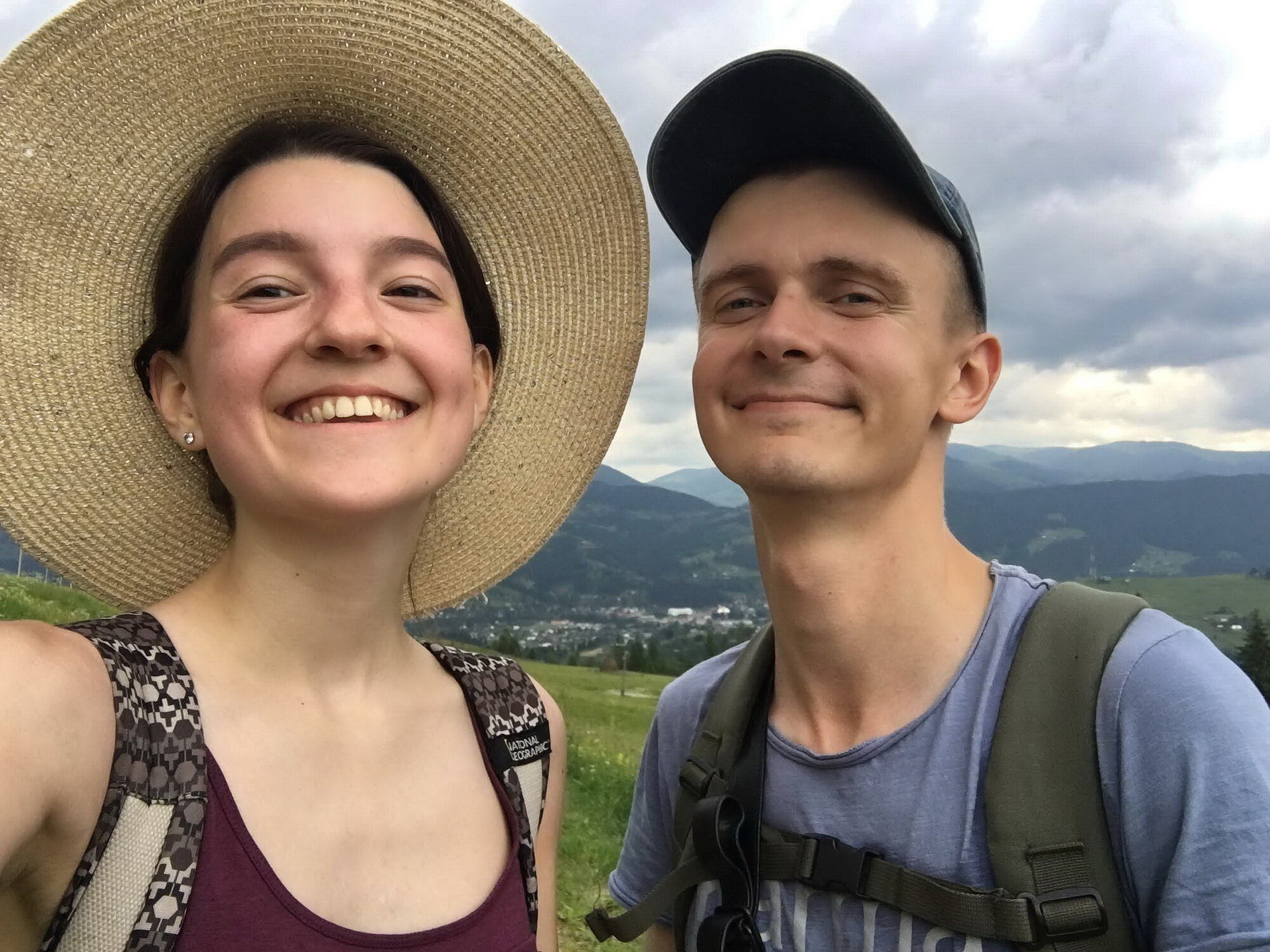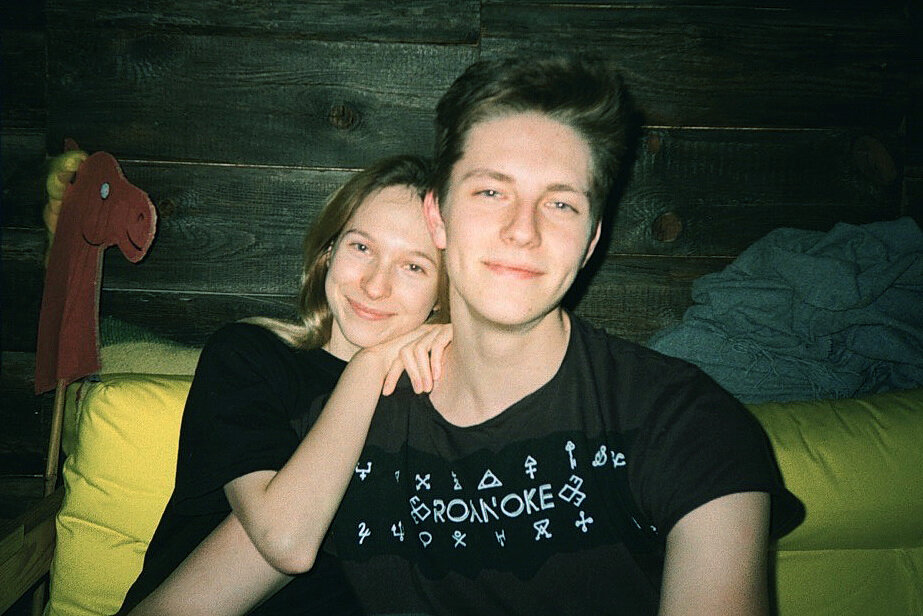Being in love in the middle of a global disaster is often overly romanticized in popular culture.
Or is it?
Staying under quarantine and spending most of the time together, some couples get bored or irritated by the annoying habits of their loved ones. Too much togetherness or sheltering in place leads some couples to reassess the relationship altogether.
In extreme cases, break-ups and divorces happen.
But many partners – whether they stay together or separately – appear to enjoy each other no less during the pandemic. To maintain healthy relationships, they have gone creative ways to readjust to the new circumstances.
Ukrainian psychoanalyst Kateryna Skuibida says that quarantine isn’t bigger of a challenge than many events couples go through, like having children together.
She says that the pandemic and the restrictions aimed to slow it down pushed everyone out of their comfort zone, as “nothing is the way it used to be.”
But the psychoanalyst says that as challenging as the quarantine is for couples, it is also an opportunity. Even partners who discover some issues in their relationships might benefit after resolving the conflict.
“Some break up, but others might cultivate even a stronger synergy,” Skuibida told the Kyiv Post.
Living together
According to Skuibida, couples that were forced to home-quarantine and spend most of the time together might have to finally confront the issues that they’ve been running away from. Now that they are deprived of the usual outside of home life – work, gym, friends – the two have no distraction, which is why issues and problems might intensify.
She says that some might also bring home their behavioral patterns from work. For instance, competitive individuals might antagonize their partners.
The other issue that might deepen is the imbalance in the amount of time they’re willing to spend with each other. That’s when couples should be upfront about their feelings and set up boundaries that suit both, the psychoanalyst says.
Skuibida says that all couples are individual and there’s no universal recipe to avoid or fix difficulties but those, who have a mature and healthy attitude towards themselves and their partner, don’t need any advice, she says.
“They will find a way to manage their home life so that neither one suffers from it,” she says.

Alina Andreieva and Viktor Lavrov are experiencing few issues despite staying together day and night in their Kyiv apartment under the lockdown. (Courtesy)
Alina Andreieva and Viktor Lavrov
That was the case for Alina Andreieva, 23, and Viktor Lavrov, 28.
By the time the quarantine hit their lives, the two had been living together for over three years. Seven weeks into the lockdown, they say they haven’t discovered anything new about each other.
“We started working on our mental health a long time ago,” Andreieva says. “And now it’s paying off,” Lavrov adds.
Andreieva is a photographer and retoucher. She would normally have several shootings a week and edit pictures the rest of the time at home. Today she refuses to do shootings for safety reasons and has few retouch orders, so most of her time has freed up.
Lavrov is a software developer, who usually has an office schedule but works remotely now.
Normally, the two spend evenings and weekends together watching movies and hanging out with friends.
Today they do pretty much the same except that their meetings with friends transformed into a new tradition of group calls on the Zoom video chat app, with glasses of wine, beer and quarantine stories to share.
However, they say they have always respected each other’s personal space and hobbies.
“When all your leisure is your partner, who has to entertain you, it’s hard,” Lavrov says.
Lavrov is a big gaming enthusiast and he loves to let off steam playing games after hours of coding.
Andreieva, meanwhile, is always immersed in the world of photography, as her job is also her biggest hobby. Now that she has few opportunities to do that, she focused on a new passion and is learning how to play the piano. She also started trying out some of the video games her partner showed to her.
The quarantine has also brought some financial inequality to their relationship. Andreieva earns noticeably less, so she decided to be more useful at home by cooking and taking care of other household duties.
“I want to do something nice for our relationship,” she says. “When I get to work more, I will demand from him to get back involved,” she says laughing.
In those rare moments when their moods or desires don’t match, they follow a simple rule to always voice wishes and complaints.
While Lavrov is enjoying a long-awaited break from office life, Andreieva says that she couldn’t be happier while being surrounded by what she truly values – her creative tools, their cat and “Vitya, who I love.”
Staying apart
While some couples are staying together day and night, others are only dreaming of such luxury.
As the government banned domestic travel, shut down subways in big cities and limited other public transport, many couples found themselves separated by distance.
Skuibida says that quarantine is approached as something out of ordinary for couples that stay apart but it can easily be compared to long-term business or family trips that separate the loved ones.
The psychoanalyst says that for long-distance relationships, it is a test of how involved in a relationship the partners are. If the answer is positive, the two will sublimate their feelings into some new ways of communication.
“If there are love and libido, there will be creativity,” she says.

Maryna Burska and Taras Sukhopliasov, who live in different cities, are forced to stay apart during the quarantine that bans domestic travel. (Courtesy)
Maryna Burska and Taras Sukhopliasov
For Maryna Burska, 19, and Taras Sukhopliasov, 24, missing each other from afar was nothing new – they have maintained a long-distance relationship for nearly two years.
She is a Kyiv-based student. He is a firefighter on military service stationed in Zhytomyr, a city of 260,000 people located about 140 kilometers west of Kyiv.
Normally, they spend several weekends together every month. Since the start of the quarantine on March 12, they saw each other once before the restrictions were intensified and all domestic travel was shut down.
“It’s hard emotionally,” Burska says. “I miss our meetings.”
Worse still, the couple is forced to communicate less than ever now that it’s the wildfire season and Sukhopliasov is involved in putting out some of them in Zhytomyr Oblast.
Despite all the challenging obstacles, the couple found new ways to express their love.
Sukhopliasov calls his girlfriend every morning so that she wakes up hearing his voice.
Now that Burska has more free time under the lockdown, she bakes desserts, like muffins and cookies, and sends them to her partner.
“I’m supporting him this way because he’s struggling now,” she says.
While the two are putting effort into video chatting as often as possible, they both can’t wait for the quarantine to be over. The first thing on their list is heading to each other.
“No matter how, no matter where,” Burska says.
Moving in
The lockdown has pushed some couples to speed things up and move in together. Whether it’s temporary or for good, they entered a new relationship phase earlier than expected.
Skuibida says that such partners will have to give up on the idea of being perfect all the time and face the challenge of showing their insecure sides.
According to the psychoanalyst, for such relationships, it’s crucial to be honest about their home life preferences, to communicate and find a way to merge them.
“A new state has been formed. It needs laws,” Skuibida says.

Eight months into their relationship, Maria Bondarenko and Maksym Petrenko decided to move in and stay together until the nationwide lockdown is over. (Courtesy)
Maria Bondarenko and Maksym Petrenko
Maria Bondarenko, 18, and Maksym Petrenko, 18, are in the middle of such lawmaking now.
The two are fellow students at the National University of Kyiv-Mohyla Academy who have been dating for about eight months.
Their relationship started off in the school halls and was largely connected to student life. Now that all the country’s educational institutions shifted to remote schedule, the couple had to readjust.
The two wanted to study together so, at the beginning of the quarantine, Petrenko came to Bondarenko’s house outside of Kyiv, where she lives with parents and two younger siblings. What was supposed to be a several-day-visit turned into seven weeks of living by each other’s side.
Together they prepare for exams, take additional classes online, watch movies, cook and play with Bondarenko’s siblings. But as they do all the routine activities, they get to know what they haven’t before.
“It’s our first experience of the kind,” Petrenko says. “It’s nice that the image of the person is getting complete,” he adds.
Bondarenko says that they got to learn each other’s habits. It turns out their breakfast preferences are far from similar.
“He loves dairy products, like cottage cheese and I can’t stand it,” she says. “So he’s making eggs for me.”
Petrenko, meanwhile, is dealing with his partner’s manner to stretch all over the bed at night leaving him with little space. But he sees beauty in the opportunity to experience that.
“I’m discovering and enjoying her,” he says.
Although the two will likely get back to living separately when the quarantine is over, they both learned something very valuable over this time.
“It became clear that we fit each other perfectly,” Bondarenko says. “When we move in together, there shouldn’t be any problem.”
